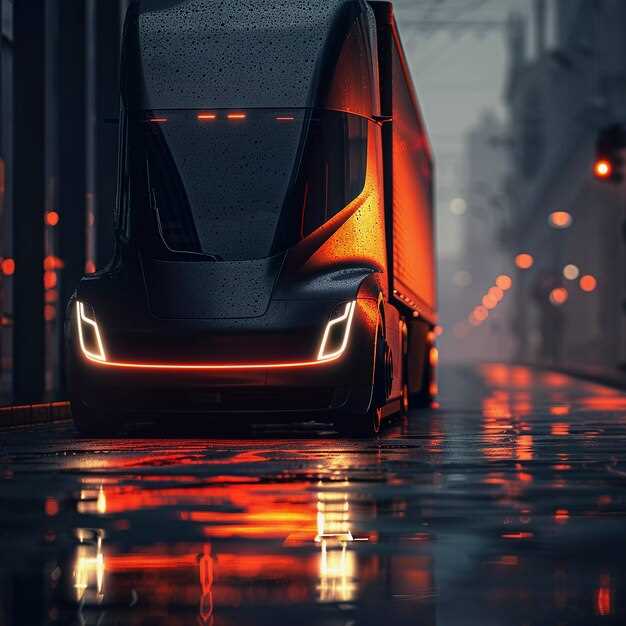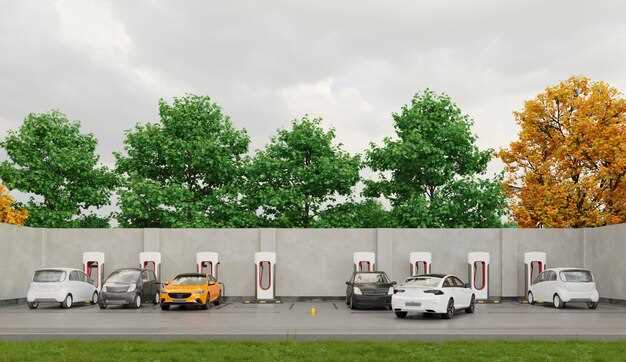
The electric truck market has been rapidly evolving, driven by the global shift towards sustainability and the need to reduce carbon emissions. Major players in this sector are pioneering innovative technologies and implementing strategic collaborations to dominate the market landscape. These advancements not only enhance the efficiency and performance of electric trucks but also address the growing consumer demand for environmentally friendly transportation solutions.
Among the key contenders are established automotive giants and new entrants alike, each contributing unique strengths and insights into the development of electric trucking. From legacy manufacturers leveraging their extensive experience in vehicle production to startups focusing on cutting-edge design and technology, the competition is fierce. Companies such as Tesla, Rivian, and Volvo are leading the charge, investing heavily in research and development to create robust electric truck models that meet the needs of diverse industries.
The integration of sophisticated battery technologies, advanced automation, and enhanced safety features is pivotal for the success of these players. As the industry adapts to regulatory changes and consumer preferences, the leading manufacturers must navigate various challenges, including infrastructure development and supply chain complexities. This article delves into the profiles of the top players shaping the electric truck market, exploring their strategies, innovations, and contributions to a greener future.
Key Innovations by Major Electric Truck Manufacturers
Electric truck manufacturers are rapidly advancing the industry through various innovative technologies. One of the most notable innovations comes from Tesla, with its Tesla Semi. This all-electric truck features a range of up to 500 miles on a single charge, enhanced by its advanced battery technology and aerodynamic design. It boasts a 0 to 60 mph acceleration in just 20 seconds with a full load, significantly enhancing loading efficiency.
Rivian, another key player, has introduced the Rivian R1T and R1S models, which incorporate a unique “skateboard” platform. This design not only lowers the center of gravity for improved stability but also allows flexibility in adapting different body styles. The vehicles come equipped with a robust battery management system, enabling fast charging capabilities and an impressive driving range.
In addition, Volvo is making strides with its VNR Electric model, designed specifically for urban distribution. This truck focuses on sustainability, utilizing a regenerative braking system that recovers energy during stops, significantly enhancing efficiency. The VNR Electric can cover up to 150 miles on a single charge, making it suitable for short-haul operations, coupled with an advanced telematics system that improves fleet management.
Mercedes-Benz has also entered the market with its Econic electric truck, specifically designed for municipal applications. It features a low entry for easy access and superior visibility. The package includes automated driving assistance systems which enhance safety and reduce the risk of accidents in urban settings.
Lastly, BYD has made a significant impact with its BYD 8TT model, which features a modular battery architecture. This flexibility allows fleets to customize battery sizes according to their specific operational needs, optimizing both cost and performance. The truck also includes a suite of smart features for operational efficiency, including predictive maintenance alerts and route optimization software.
Market Share Analysis: Who Dominates the Electric Truck Landscape?

The electric truck market has seen significant growth in recent years, driven by advancements in technology, environmental regulations, and shifting consumer preferences. As several key players enter this space, it becomes essential to analyze market shares to understand who currently dominates the landscape.
Leading the charge is Tesla with its innovative Tesla Semi. The company’s strong brand reputation in the electric vehicle sector, coupled with its extensive Supercharger network, positions it as a formidable competitor. Tesla’s focus on high-performance specifications and reliable delivery schedules has garnered significant attention from logistics and haulage companies.
Following closely is Rivian, with its R1T and R1S electric models aimed at both consumers and commercial applications. Rivian has secured substantial funding and partnerships with major companies like Amazon, which has placed significant orders for electric delivery vans, enhancing its market visibility and penetration.
Another noteworthy competitor is Daimler Trucks, a traditional industry titan that has made substantial investments in electric technology. The company’s Freightliner eCascadia and eM2 models are designed specifically for urban deliveries and long-haul applications, catering to a broad range of commercial needs.
Volta Trucks is also gaining traction with its fully electric Volta Zero, targeting the urban logistics market. By prioritizing sustainability and reducing emissions in city environments, Volta is positioning itself as a specialist in an increasingly relevant niche.
Moreover, established automotive manufacturers like Ford and General Motors are rapidly transitioning towards electric offerings. Ford’s electric F-150 Lightning and GM’s upcoming electric platform demonstrate their commitment to capturing a share of this burgeoning market, leveraging their existing customer bases and distribution networks.
Furthermore, the growing presence of startups like Arrival and Nikola adds a competitive edge to the market. Arrival’s focus on modular design and Nikola’s hydrogen-electric hybrid technology are driving innovation and expanding options for commercial fleets.
Data indicates that incumbent brands still hold a significant portion of the market share, but the rapid entry of new players and evolving consumer demand suggests that the electric truck landscape will continue to shift. As these companies innovate and scale production, the dynamics of market dominance are poised for transformation in the coming years.
Challenges Faced by Electric Truck Companies in Adoption and Infrastructure

The transition to electric trucks is fraught with challenges that impede widespread adoption and development of necessary infrastructure. One significant hurdle is the high initial cost of electric trucks compared to traditional diesel vehicles. Despite lower operational costs over time, the upfront investment can deter fleet operators from making the switch.
Another major challenge is the limited charging infrastructure. The existing network of charging stations is often inadequate for the needs of heavy-duty electric trucks. This lack of widespread charging facilities can lead to range anxiety among operators, ultimately affecting their willingness to adopt electric alternatives.
Additionally, the battery technology itself poses constraints on adoption. Current battery capacities may not sufficiently support long-haul distances, and the time required for recharging remains a disadvantage when compared to refueling conventional trucks. Consequently, companies face pressure to invest in research and development to enhance battery efficiency and longevity.
Furthermore, regulatory hurdles can complicate the adoption process. Transportation regulations may not yet be fully aligned with advancements in electric vehicle technology, resulting in a complex landscape for compliance. As policies evolve, companies must navigate these changes while maintaining operational efficiency.
Lastly, public perception and resistance to change can hinder progress. Misconceptions about the reliability and performance of electric trucks could slow acceptance among potential users. Education and outreach efforts are crucial to dispelling myths and demonstrating the benefits of electric logistics solutions.

